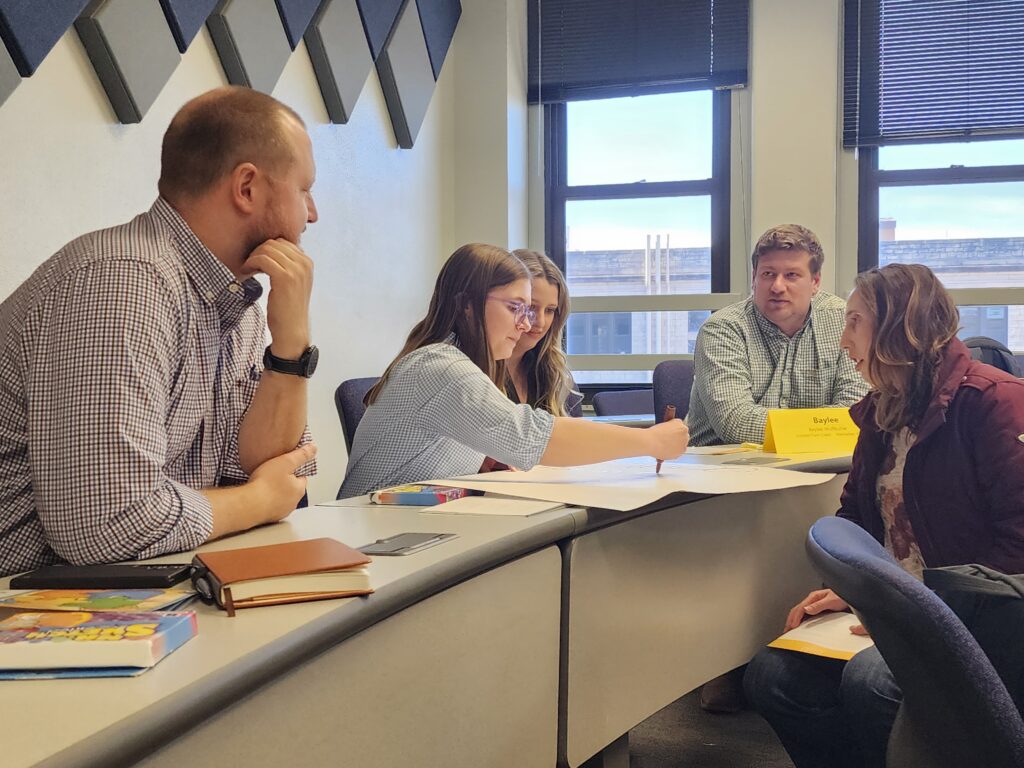Being in agribusiness means being involved in farming, food production, and other related industries, handling everything from growing crops to processing and marketing agricultural products. Though focusing more on the business side of agriculture, you are often working on-site just as much, dealing with unpredictable weather, market fluctuations, regulatory changes, and consumer demands.
“Anyone who’s ever worked in agribusiness knows that you can’t just take time off to sit in a classroom,” Oussama Alaoui says. Alaoui is the Moroccan representative for the Australian Trade and Investment Commission and Chairman and CEO of Stellar International Enterprises. He is also a Kansas State University agribusiness graduate. “Being able to earn my graduate degree without having to physically be at the campus full time has allowed me to keep up with my business responsibilities in Morocco and still earn a master’s degree,” he says.
Alaoui is talking about the Master’s in Agribusiness Online, a flexible, business-focused graduate degree designed for professionals currently working in food, animal health, and agriculture. Instead of having to attend in-person classes every day, the hybrid online degree only requires you to visit either the main campus in Manhattan or Olathe two weeks a year. The rest of the time, the programme takes advantage of the latest technology and a combination of learning styles which include audio, visual, and text.
Lectures come in the form of customised flash drives for each of the courses. They may also be accessed via the Internet or downloaded to an iPod/MP4 player with notes accompanying them, so you are able to follow along with the lecture. Another component of the course is the interactive weekly recitation sessions. This is where you virtually meet your fellow classmates and lecturer online for discussions and teamwork to gain further understanding of the course material.
If you are unable to attend the session, do not worry. They are recorded and archived in MP4 format so you may review what was discussed in class. On campus, the MAB programme also brings industry leaders to give talks on topics that range from ethics to risk management and globalisation of the food industry, expanding your exposure to what is happening in the world of agribusiness.

Online coursework is done through the Internet, flash drives, podcasts and online recitation sessions with occasional campus visits. Source: Kansas State University
The programme’s convenience makes going back to school without career interruption possible, even for those in jobs requiring travel or frequent transfers. Just like Alaoui, who studied and worked at the same time, you too can benefit from the flexibility to fit the programme around your career and life commitments. In fact, this format allows you to integrate key concepts from your programme and immediately relate and apply what you have learned in class to your workplace. “Professionally, the MAB has been a precious asset. I’ve been using the concepts and methods covered in the programme within real business situations,” Alaoui says.
Another MAB graduate and current Associate Vice President of the National Bank of Canada, Clair Doan, agrees. “I joined this programme to better myself and my career,” he says. “Even in just my first year, we had several courses that provided not just a foundation in business but also had assignments that are directly relevant to my job as a bank manager that lends money to farmers.”

MAB students’ complete company-related projects, often solving issues for their own firms. Source: Kansas State University
Specialising in animal health
The MAB is divided into two cohorts: the original agribusiness core programme and one ideal for animal health professionals. The latter offers animal health-focused courses like Sales and Marketing in the Global Animal Health Industry and Economics of the Global Animal Health Industry. These will enhance your management and strategic skills to tackle current challenges rapidly changing the animal health industry, like stringent regulatory requirements and approval processes, the emergence of antimicrobial resistance, and market fragmentation.
Whichever you choose to specialise in, you are on track to a more fulfilling career. This is evident by the list of prolific companies in which past students are now thriving at: General Mills, National Milk Producers Federation, Dole plc, and many more.
“The high-demand expertise acquired through the MAB has opened up a wide range of opportunities for me, as a consultant and advisor for private groups, international organisations, and government agencies,” Alaoui says.
Follow Kansas State University’s Master of Agribusiness programme on Facebook, Instagram, LinkedIn, X, and YouTube.

